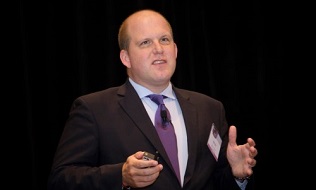

Jason White wants to see Canadians getting a healthier dose of braised duck in their investment diets.
White, a portfolio specialist in the equity division at T. Rowe Price Group Inc., singled out fast-food chain Zhou Hei Ya, which has turned the street-food staple into a mainstream hit on the Chinese mainland, as a classic example of the type of international small-cap equity opportunity that domestically focused fund managers are missing out on.
“No one has heard of them here, but their brand power is far greater than Starbucks or Tim Hortons if you’re Chinese and you’re in China,” said White during a session at Benefits Canada’s 2017 Defined Contribution Investment Forum in Toronto. “This is something that you’re not going to get exposure to anywhere else by owning a Canadian company, owning a U.S. company or owning a multinational like Nestlé.”
Read: Maple bonds among Canadian fixed-income opportunities in challenging market
White made the case at the conference for global and international equity markets, claiming they offer both breadth and depth for Canadian fund managers looking to expand their opportunity set.
He explained that home-country bias is an investment phenomenon that occurs in most jurisdictions around the world but can lead to overexposure. For example, he pointed out that companies in the financial, energy and materials sectors make up almost three-quarters of the Toronto Stock Exchange.
“One of the easiest ways, I think, to expand the opportunity set is to think about global equity,” he said. “If you look more broadly outside of Canada, you will see technology, health care and some of the more consumer-oriented companies, both on the cyclical and defensive side.”
Read: Plan sponsors urged to consider key distinctions between DB, DC plans
He said a dedicated international small-cap allocation allows managers to “go deeper” by identifying well-run, domestically oriented businesses. Others might prefer to target emerging markets, White noted. “The long-term case for emerging markets is still very much intact. Ten years ago, it was all about materials and energy and the commodity cycle. Now it’s very much about the new economy, the internet and pattern recognition from what you see in the developed world.”
Either way, he said the conditions in the market are good for active management, pointing out that excess returns are largely a result of stock selection. He also noted there’s a wide dispersion of returns within sectors, despite high levels of correlation in the market as a whole.
“We believe active managers can add alpha over time, but you have to look at folks who have skill and who have a good process,” said White.
Read more articles from the 2017 DC Investment Forum
